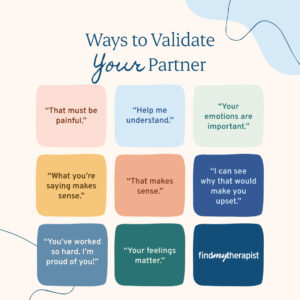Understanding Resentment in Relationships

Resentment in relationships is like a slow-burning fire — it may begin subtly, but over time, it can consume connection, intimacy, and trust. If left unaddressed, resentment can quietly undermine even the strongest partnerships, turning affection into frustration and distance. Whether you’re currently experiencing resentment or hoping to prevent it, understanding its root causes and how to let go is essential for healthy, lasting relationships.
In this blog, we’ll break down what resentment really means, how to recognize it, common causes, and how to address and manage resentment.
What is resentment?
Resentment is a complex emotional response that often arises from frequent arguments, perceived injustice, unmet needs, or repeated disappointment. It’s the accumulation of unspoken anger, hurt, and frustration that develops over time. In relationships, resentment often stems from unresolved issues that haven’t been openly communicated or healed.
Resentment is different from anger. While anger is often immediate and reactive, resentment is prolonged and internalized. It’s the grudge we silently hold, the bitterness that resurfaces in conversations, and the cold distance that replaces warmth in partnerships.
Signs of resentment in relationships
Resentment doesn’t always announce itself loudly. Sometimes, it’s hidden beneath sarcasm, withdrawal, or passive-aggressiveness. Here are some of the most common signs of resentment in relationships:
- Keeping score: Constantly bringing up past mistakes or comparing efforts in the relationship.
- Constant criticism: You or your partner frequently find faults in each other.
- Passive-aggressive behavior: Snide comments, sarcasm, or avoidance replace direct communication and can create feelings of loneliness.
- Emotional distance: You no longer feel as close or connected as you once did.
- Recurring arguments: The same issues resurface without resolution.
- Avoidance or stonewalling: Conversations frequently end in shutdowns or silent treatment.
- Loss of affection: Physical intimacy, kind gestures, or words of affirmation diminish.
- Feeling unheard or unappreciated: You feel like your efforts or needs are not acknowledged.
- Irritation over small things: Minor annoyances may trigger disproportionate reactions.
Causes of resentment in relationships
Understanding where resentment comes from can help you avoid building emotional walls. Here are some of the most common causes of resentment:
- Unbalanced effort: When one partner feels like they are carrying more of the emotional, financial, or household responsibilities, resentment can build.
- Unmet emotional needs: When one or both partners feels emotionally neglected or unsupported, it can lead to feelings of being unvalued and alone.
- Lack of communication: Suppressing feelings instead of discussing them openly leads to accumulated frustration.
- Unresolved conflicts: Avoiding difficult conversations can cause old wounds to fester.
- Betrayal: Infidelity, dishonesty, or broken promises can create deep emotional wounds.
- Lack of boundaries: When boundaries are not respected or clearly set, one partner may feel taken advantage of.
- Feeling unappreciated: When efforts go unnoticed, it can lead to frustration and emotional withdrawal.
- Holding grudges: Reliving past mistakes instead of forgiving prevents healing and moving forward.
Examples of resentment in relationships
Resentment doesn’t always show up in obvious ways. In fact, it often hides behind everyday interactions that may seem normal on the surface. Here are some examples of how resentment might play out in a relationship:
- One partner constantly takes on more chores, errands, or emotional labor, feeling frustrated that the other doesn’t offer help. Instead of asking for support, they silently deal with it and do it anyway, building resentment.
- One partner remembers every time they stayed late with the kids, paid the bills, or made sacrifices and brings it up during arguments, expecting the other to “even the score.”
- One partner makes a comment about the dishwasher not being loaded “right” and it turns into a blowup. It’s not about the dishes — it’s about feeling unappreciated for months.
- Instead of communicating directly, one partner gives the cold shoulder, rolls their eyes, or makes snarky remarks as a way to express their hurt indirectly.
- One partner stops sharing feelings, needs, or dreams because they feel unheard or dismissed in the past.
Addressing resentment in relationships
With open communication, self-awareness, and effort from both partners, it’s possible to heal resentment and rebuild trust and intimacy. Here are ways you can address resentment in your relationship:
- Open the door for honest communication: Create a safe space where both partners can share their feelings without judgment. Use “I” statements to express emotions rather than blame. For example, “I feel overwhelmed when I don’t feel supported” instead of “You never help me.”
- Validate each other’s emotions: Resentment often stems from feeling unseen. Even if you don’t fully understand your partner’s experience, validating their emotions (“I can see why that hurt you”) helps rebuild emotional safety.
- Seek to understand, not defend: When resentment is shared, it’s natural to become defensive — but healing happens through curiosity, not combat. Ask questions like, “Can you help me understand how that made you feel?”
- Take responsibility: Owning your role in the dynamic — whether it’s failing to communicate, avoiding conflict, or dismissing feelings — can help defuse resentment and promote relationship growth.
- Rebuild trust through action: Words matter, but consistent, intentional behavior change is what heals. Follow through on commitments, show empathy, and prioritize quality time.
- Consider couples therapy: A couples therapist can help you and your partner navigate difficult conversations, rebuild connection, and develop new communication skills.
What to do if you’re causing resentment
It can be hard to hear, or even harder to realize, that your partner may be harboring resentment toward you. But if you’re reading this and wondering whether your actions (or inactions) might be part of the problem, that’s already a meaningful first step. Self-awareness and accountability are powerful tools for healing and change. Here’s what to consider if you think your partner might be feeling resentful toward you:
- Listen without defensiveness: When your partner opens up about feeling hurt or unappreciated, resist the urge to justify or explain right away. Try to simply listen. Phrases like “I didn’t mean to hurt you” can come across as dismissive. What matters is how they felt, not just what you intended.
- Reflect on patterns: Ask yourself, “Do I often forget or avoid shared responsibilities?” or “Have I relied on my partner to carry more of the emotional or physical workload?” Even if the answer is yes, that doesn’t mean you’re a bad partner. It means you now have an opportunity to understand and shift those dynamics.
- Ask, don’t assume: You might think everything is fine because your partner hasn’t said anything, but silence doesn’t always mean satisfaction. Try asking, “Is there anything you’ve been holding in or feeling frustrated about that we haven’t talked through?”
- Show, don’t just say: Words are important, but consistent actions build trust. If your partner feels like they’ve been carrying more of the mental or emotional load, look for specific ways to share that burden.
How to let go of resentment
Letting go of resentment is both a personal and relational process. Even if your partner apologizes and makes changes, the emotional residue can linger unless you actively work to release it. Here’s how you can begin to let go of resentment:
- Practice self-reflection: Ask yourself: What am I holding on to? What do I need to feel at peace? Sometimes resentment stems from unresolved emotions that aren’t fully understood.
- Acknowledge your feelings: Suppressing your pain won’t make it go away. Journaling, talking with a therapist, or confiding in a trusted friend can help you process.
- Set boundaries: Letting go of resentment doesn’t mean tolerating repeated hurt. Boundaries protect your emotional well-being and prevent future resentment.
- Embrace forgiveness: Forgiveness doesn’t mean excusing bad behavior; it means freeing yourself from the emotional burden. Often, forgiving yourself for your role in the resentment is part of the healing, too.
- Focus on the present: Resentment lives in the past. Redirect your energy toward rebuilding the connection now. What can you and your partner do today to feel more connected?
- Commit to growth: Letting go of resentment requires a mindset shift — from blame to understanding, from pain to possibility. It’s a choice you make daily.
Takeaway
Resentment in relationships is painful — but it’s also a powerful signal that something needs attention, care, and change. If you’re noticing signs of resentment in your relationship, it’s not too late. By understanding the causes, communicating openly, and committing to healing, you can rebuild trust, intimacy, and mutual respect.
Every relationship experiences struggles, but it’s how you face them that defines your bond. Let resentment be the beginning of a deeper conversation — not the end of connection. If resentment is impacting your relationship, our network of couples and marriage therapists can help. Choose your therapist at findmytherapist.com and schedule your first appointment online.
Ready to prioritize your mental health?
Great Lakes Psychology Group is here to help. With an extensive network of caring therapists available to meet online or in-person, we make it easy to find the right fit for your unique needs.



